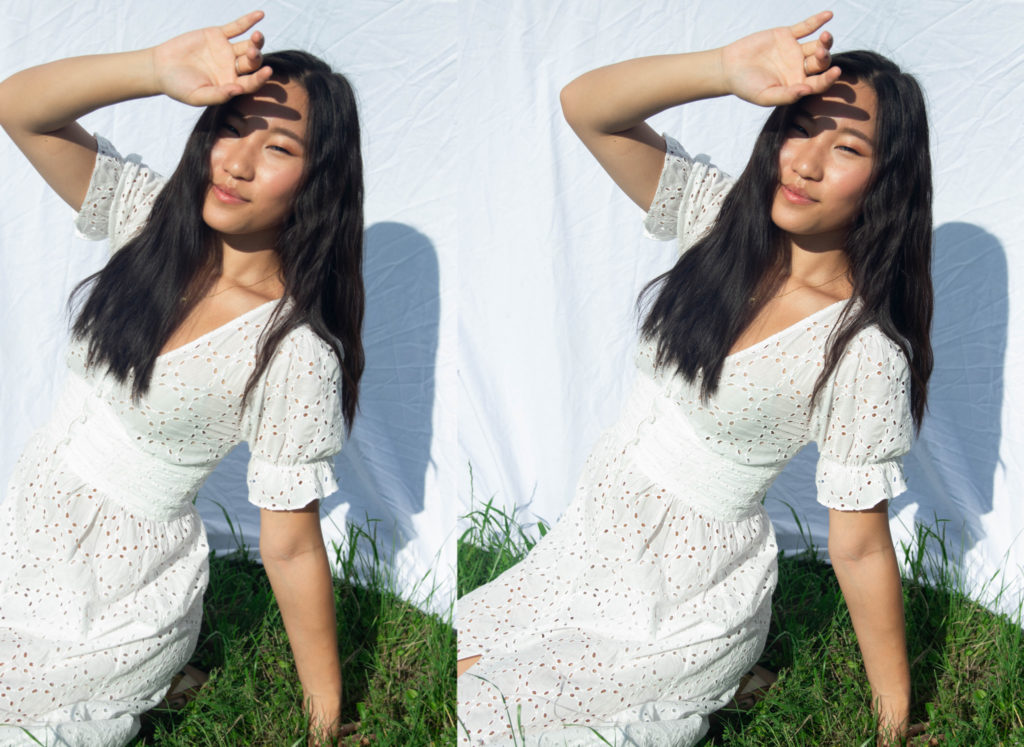The last thing I expected to learn from graduating during a global pandemic is that closure doesn’t really exist.
By Joanne Xu, Photo by Paige Miller
The last time I walked to campus was a sad Monday. Introduction to Finance, a freshman weed-out course I’d neglected to take until my senior year, was starting in 20 minutes and I was 25 out, minimum. Normally, I’d have the walk timed perfectly—from my far corner of West Campus, it’s an exactly 18-minute diagonal cut if I stride my short legs briskly enough—but it was a perfect storm of a bad morning. I was running late, I was avoiding an ex and the air was particularly greasy. I barely looked up once.
But had I known it’d be my last Monday at the University of Texas, maybe I would’ve let myself be late.
Maybe I would have stopped abruptly in the middle of the South Mall just to close my eyes and inhale. Campus air hits differently. Maybe I would’ve cared a little more about learning income statements and balance sheets.
That’s the thing we’re all beating ourselves up about now, right? The “had I knowns.” Had we all known that our countdown to real life would get cut short, we would have let our friends convince us to go out, slowed down our commute, ignored allergies and laid out on the lawn, jumped in the fountain.
It’s easy to settle in a pool of regret of our own making when all you have is time to think. The past feels familiar, more comfortable than having to calculate the uncertainty of the future. So backward we look, and keep looking, searching in the rearview mirror for some shroud of reassurance or perspective, something to relieve us of our regret. The weightiness of a global pandemic disallows us from looking away; tragedy forces us to reflect.
Reflect I have, dissecting every moment that I did and didn’t waste in the past three and a half years. If I close my eyes and focus hard enough, memories play like a movie reel against the inside of my eyelids. I see the team I led at Spark Magazine swarming around my friend Mijolae when I revealed her as the cover star of my first issue as editor-in-chief. I see a stadium swell to the opening notes of Don’t Stop Believing in the fourth quarter of a football game. I see the arches and limestone and 100-year-old trees that stand guard over our campus.
I see faces. Lots of faces. They belong to the kid that sat next to me at random in my first college class; the girl from my high school it took leaving Frisco, Texas to become friends with; the one in class that always nodded in encouragement when I looked nervous to present. Classmates from the rarely successful school projects, strangers that walked my same route on opposite sidewalks, professors that still care. I see dear friends, new friends, some that will fade with time, some that will call me once a week for the next 20 years.
And when I open my eyes, I realize that last Monday might have been unwittingly sad, but the rest of my days here were so fantastic.
I admittedly set out to write this retrospective in tender hope of reclaiming some sense of closure. And yet again, as I’ve felt with all things in the last few weeks, I’m disappointed by the lack of results. Closure is a big word. I imagine most people think finding closure feels similar to realizing you’re in love. We think it’s going to be this grand, sweeping flutter of heart palpitations, and that you’ll just know that the gods or your body or some other great force of nature have decided that you get to unlock this feeling.
Closure, I now hate to inform, does not feel like a million knots untying all at once.
It’s quieter than that: It trickles slowly into your stomach with every active effort to rewrite your regrets, then your chest and your conscience. Closure requires us not to make peace with the past or distract ourselves with planning the future, but to acknowledge what we did have. I may not have gotten a last round of memories, but I have enough to hold on to.
The big moments in life, I’ve decided, don’t add up to some grand, sweeping flutter. They’re not supposed to. That’s the closure.
In a few more lines, this story will end because I’m tired of thinking about the last six months as if my life were split into a dramatic two-parter: what I wish I had known and the aftermath. Even when we wish it wasn’t, life is just one continuous timeline, and it doesn’t slow down and wait for us to get over our “had I knowns.” That is the lesson to learn.
It’s hard to tie this essay up with a pretty bow when I’m just now starting to take my own advice. Things are still very much up in the air. There’s a lot of reflecting still left for me to do. But right now, I’m focused on finishing my finance class, and relishing in extra time with my parents, and acknowledging every day in its existence.
Even when it’s a sad Monday.


